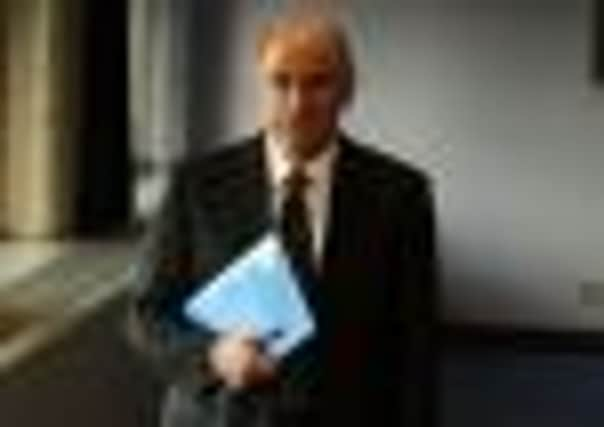PM baulks over Press laws


The Prime Minister exposed deep splits within the coalition and was accused of letting down the victims of phone-hacking after he told MPs he had “serious misgivings” about the judge’s call for the country’s first Press laws in more than 300 years.
Following a high-profile and often exhausting inquiry into Press intrusion lasting more than a year, Lord Justice Leveson yesterday published his long-awaited report and delivered a truly damning verdict on decades of “reckless” and “outrageous” behaviour by the national Press.
Advertisement
Hide AdAdvertisement
Hide AdIn a 2,000 page work split into four weighty volumes, the Appeal Court judge repeatedly condemned the behaviour of parts of the newspaper industry, which he said had “wreaked havoc with the lives of innocent people”.
But his call for legislation to support the establishment of a powerful new independent watchdog – which would be free from the influence of MPs and newspaper industry alike – was rejected by Mr Cameron less than two hours after the report was published.
The Prime Minister told the Commons that a new regulator was indeed required, along the lines that Leveson suggested, but voiced “serious concerns and misgivings” about taking legislative action to support it.
Despite Leveson’s insistence that new laws are “crucial” to enshrine the watchdog’s independence, Mr Cameron said the Press should be given “a limited period of time” to get its house in order, and that he would like to see a new regulator in place without new laws inside six months.
Advertisement
Hide AdAdvertisement
Hide AdHis stance was warmly welcomed by many of his own MPs and from within the media industry, but attacked by Labour, the Liberal Democrats and the victims of Press intrusion.
Solicitor Mark Lewis, who represents the family of murdered schoolgirl Milly Dowler – whose phone was hacked by tabloid journalists – said Mr Cameron had failed his clients.
“Cautious optimism lasted for about 45 minutes – and then the Prime Minister spoke,” he said.
Chris Jeffries, the retired teacher wrongly arrested for the murder of Joanna Yeates and subjected to repeated slurs by the tabloid Press, said it would be a “disaster” if Mr Cameron failed to implement the proposals in full.
Advertisement
Hide AdAdvertisement
Hide AdThe deep political divisions over the issue were exposed when Deputy Prime Minister Nick Clegg chose to make a separate statement in the Commons after Mr Cameron had spoken, setting out his own view rather than supporting the Government line.
The Liberal Democrat leader and Sheffield Hallam MP said he believed Leveson’s model could be “proportionate and workable” and insisted Parliament should push ahead “without delay”.
Labour leader Ed Miliband said the report should be accepted in full, and that he would move for a vote in the Commons by the end of January with the aim of getting the new system in place by 2015.
The first round of cross-party talks between all three leaders was held last night, but the prospect of consensus looked distant.
Advertisement
Hide AdAdvertisement
Hide AdLabour claimed it had secured a vital a concession after the Prime Minister said he would ask the Department of Culture to do some work on a draft Bill to implement the Leveson proposals – but Downing Street insisted Mr Cameron had not “given an inch”, and expected the exercise to merely make clear how complicated and far-reaching any new law would have to be.
Lord Justice Leveson’s inquiry was prompted by the revelations that Milly Dowler was among the victims of phone hacking at the News of the World (NoTW), and his report pulled no punches in condemning the behaviour of the newspaper industry.
The Press had repeatedly acted as if its own code of conduct “simply did not exist”, and “wreaked havoc with the lives of innocent people”, he said.
He was critical of the evidence presented by representatives of the NoTW and its parent companies, and said it suggested a “cover-up” within the organisation.
But he found no evidence of wrong-doing by Mr Cameron, the police or the former Culture Secretary Jeremy Hunt in their dealings with News International.